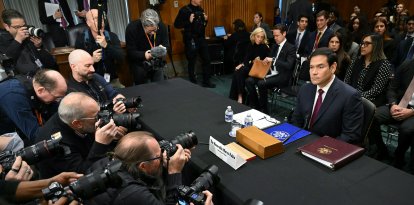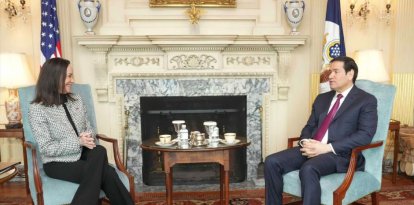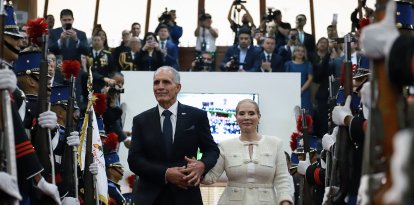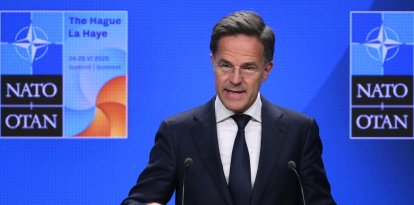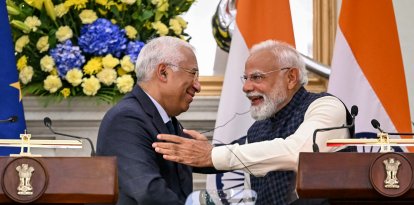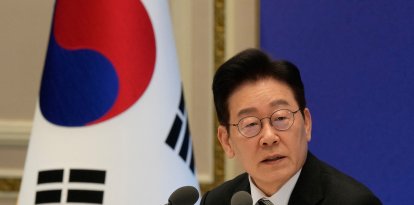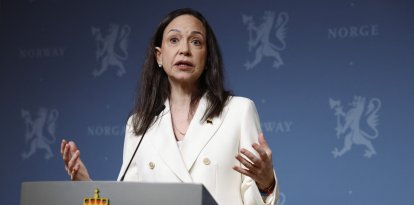On Oct. 8, 1967, Ernesto “Che” Guevara was imprisoned in La Higuera in Bolivia. One of the participants in the capture was former Central Intelligence Agency (CIA) agent Felix Rodriguez. In an interview with Flor Elena Robledo of Voz Media, he detailed the arrest of the communist guerrilla fighter and the final moments of his life.
The operation began when the CIA appointed Rodriguez and another colleague as undercover agents to undertake the arrest of Che Guevara in Bolivia:
The CIA chose us because there was a prohibition from U.S. Ambassador [Douglas] Henderson. He did not want U.S. citizens to participate in dangerous areas. And since we were not citizens at that time, we did not have that prohibition. Then two of us went to advise the Second Ranger Battalion of the Eighth Army Division. We were with the CIA. There was a group of three from the CIA that had been sent earlier to La Paz to be advisors to the Minister of the Interior.
After returning from Africa, where he was presumed dead, Guevara arrived in Bolivia. It was Fidel Castro who sent him to La Paz to be executed, as the former CIA agent points out:
He (Che) arrived in Bolivia sent by the Cubans and, obviously, they sent him specifically to be killed. When a guerrilla goes somewhere, the most important thing is to have communications with the base, and they are given several transmitters in case one fails. Che was given only one transmitter, and, when he arrived in Bolivia, the transmitter was broken. He could receive messages, but he could not answer, so he was completely isolated. Later, Mario Monje, leader of the Bolivian Communist Party, met with him on Dec. 31, 1966, and, at that moment, there was a total rift. To the point that Monje told the Bolivians who took him that if they stayed with Che they would be expelled from the party.
Capture: "I am Che … I am worth more to you alive than dead"
In October of 1967, the Guevara was captured by the battalion trained by U.S. special forces:
He was arrested on Oct. 8. On Oct. 7, the battalion of less than 200 men surrounded the Quebrada del Churo, where the guerrillas were entrenched. On the eighth day, they began to advance, and it is there when Che was captured.
At the moment of his arrest, the communist guerrilla shouted to the battalion: "Don't shoot, I am Che... and I am worth more to you alive than dead.” The following day, Rodriguez arrived at La Higuera, where Guevara was being held prisoner in a school and interrogated:
I remember entering the room with Colonel Centeno and two other Bolivian officers. The only one who spoke was Colonel Centeno, but Che looked at him and said absolutely nothing to him. I returned to the room and told him: “Che Guevara, I have come to talk to you,” to which he replied, “I am not being interrogated.”
Mutual respect
Seeing the prisoner's attitude, Rodriguez got Guevara to talk to him by empathizing with his cause but not with his ideals:
I have not come to interrogate you. Our ideas are different, but I admire you. You were a head of state in Cuba and you are here because you believe in your ideals, although I know you are wrong. I have come to talk to you.
Given his relaxed and confident demeanor, Rodriguez released Guevara from his handcuffs, and Guevara even told him some stories:
Whenever I asked him questions that were of tactical interest to us, he would say, “You know I can't answer that.” At another time, he told me that the Cuban economy was like this because of the U.S. embargo. I told him that this was ironic, because Che was president of the National Bank and Minister of Industry without being an economist. To this he replied: “I was talking with Camilo Cienfuegos, and I understood that Fidel was asking for a dedicated communist, instead of a dedicated economist, and I raised my hand.”
Order of execution
Rodríguez also spoke about the moments leading up to Che Guevara's execution and the order he received:
There's a phone call, and that's where I get the 500-600 order. We had a simple code: 500 was “Che,” 600 was “dead” and 700 was “keep him alive.” Before leaving, I told the colonel that instructions had arrived to eliminate the prisoner. When we took him outside, I gave him my camera to take the picture, and, at that moment, I thought Che was laughing. I told him, “Commander, look at the birdie,” and he died laughing. But then his expression changed when he saw that they were going to throw away the photograph.
Around 12:30 p.m., radios were already broadcasting the news that Che Guevara had died of combat wounds:
I already knew there was not going to be any counter-orders. Back in the room, I stood in front of him and said, “Commander, I'm sorry. I tried.” He understood perfectly what I was telling him. I've never seen a person’s demeanor change like that, he went white as a sheet of paper. He told me, “I should never have been imprisoned alive.” When I asked him if he wanted me to pass on a message to his family, he replied, “If you can, tell Fidel that he will soon see a triumphant revolution in America. And if you can, tell my wife to get married again and try to be happy.” Those were his final words. We shook hands, and he stood up thinking it was me who was going to shoot him.
The former CIA agent told us how he felt before the execution of the communist guerrilla fighter:
It was a very difficult moment for me as a military man, because we did not execute prisoners. I had even thought about whether I could have done something to save his life. On the other hand, I remembered when Batista pardoned Fidel and the disaster that befell my country. I said to myself, “You are here to advise, not to command. It is the decision of the Bolivian government.” And I let history take its course.
Execution
After recounting the day he captured and spoke with Guevara, Rodriguez explains what it was like at the moment of execution:
It was 1 p.m. when I left and, at 1:15, I heard a brief pop.














